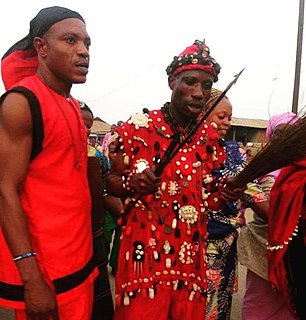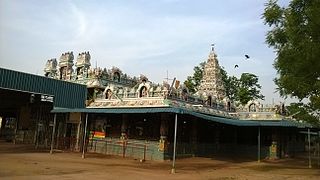 W
WBabalú-Aye, Oluaye, Ṣọpọna, or even Obaluaiye, is the orisha of healing in all its aspects, of the land, of respect for the elderly and protector of health. He is called whenever necessary to prevent infirmity.
 W
WMaisamma, also known as Mesai and additionally spelt Mesko, Amma in Telugu or Aai in Marathi is a Hindu folk goddess. She is mainly worshipped as a South Indian mother goddess, predominantly in the rural areas of Telangana, Karnataka and Maharashtra. Her worship is mainly associated with curing diseases such as smallpox and chickenpox.
 W
WMāri, also known as Mariamman and Mariaai, spelt also Maariamma, or simply Amman or Aatha ("mother") is the South Indian Hindu goddess of rain. She is the main South Indian mother goddess, predominant in the rural areas of Tamil Nadu and Karnataka. Māri is related with the Hindu goddesses Parvati and Durga as well as with her North Indian counterpart Shitala Devi.
 W
WThe temple of Maa Sheetla Chaukiya Devi is quite old. The worship of Shiva and Shakti happens here.
 W
WShitala (Sheetala), also called Sitala, is a Hindu goddess widely worshiped in the Indian subcontinent, notably in North India. As an incarnation of Supreme Goddess Durga, she cures poxes, sores, ghouls, pustules and diseases, acclaimed by Hindus. Goddess Sheetala is worshiped on the eighth day after festival of colors (Holi), on the occasion of Sheetala Asthami.
 W
WSmallpox demon or smallpox devil is a demon which was believed to be responsible for causing smallpox in medieval Japan. In those days, people tried to appease the smallpox demon by assuaging his anger, or they tried to attack the demon since they had no other effective treatment for smallpox.
 W
WṢọ̀pọ̀na is the god of smallpox in the Yoruba religion. The Yoruba people took their traditions about Shapona to the New World when they were transported in the slave trade. He has become known as Babalú-Ayé, among many other names, in the Orisha religion that developed in the Americas.